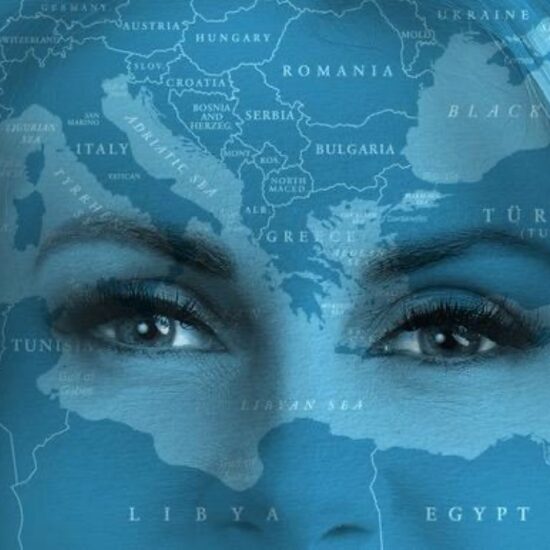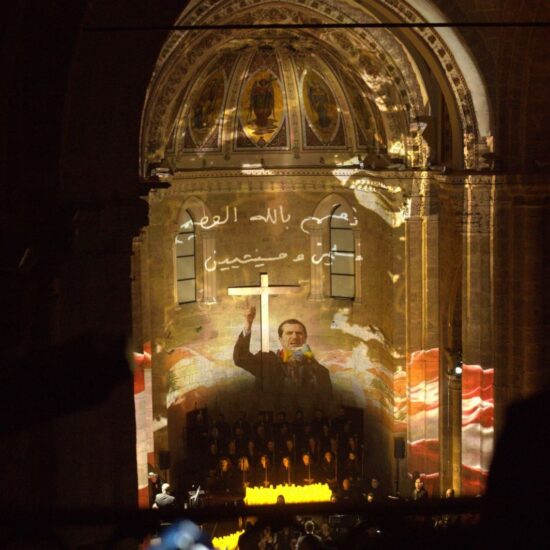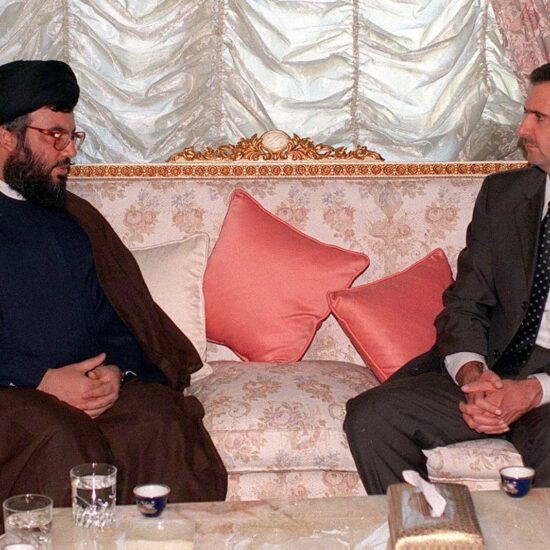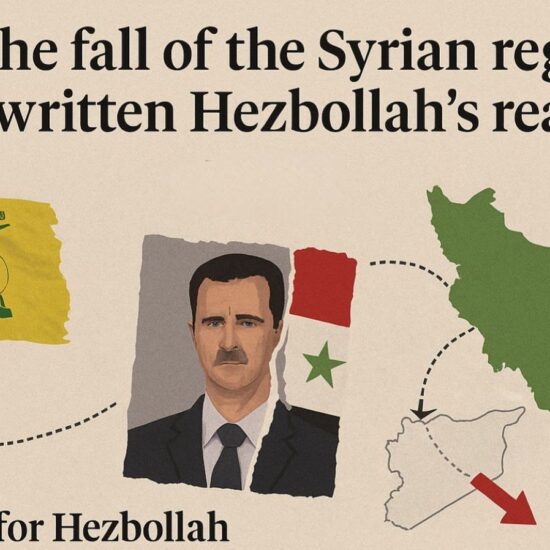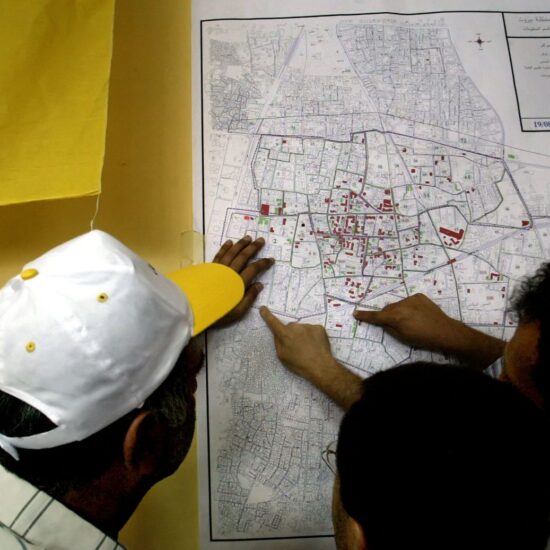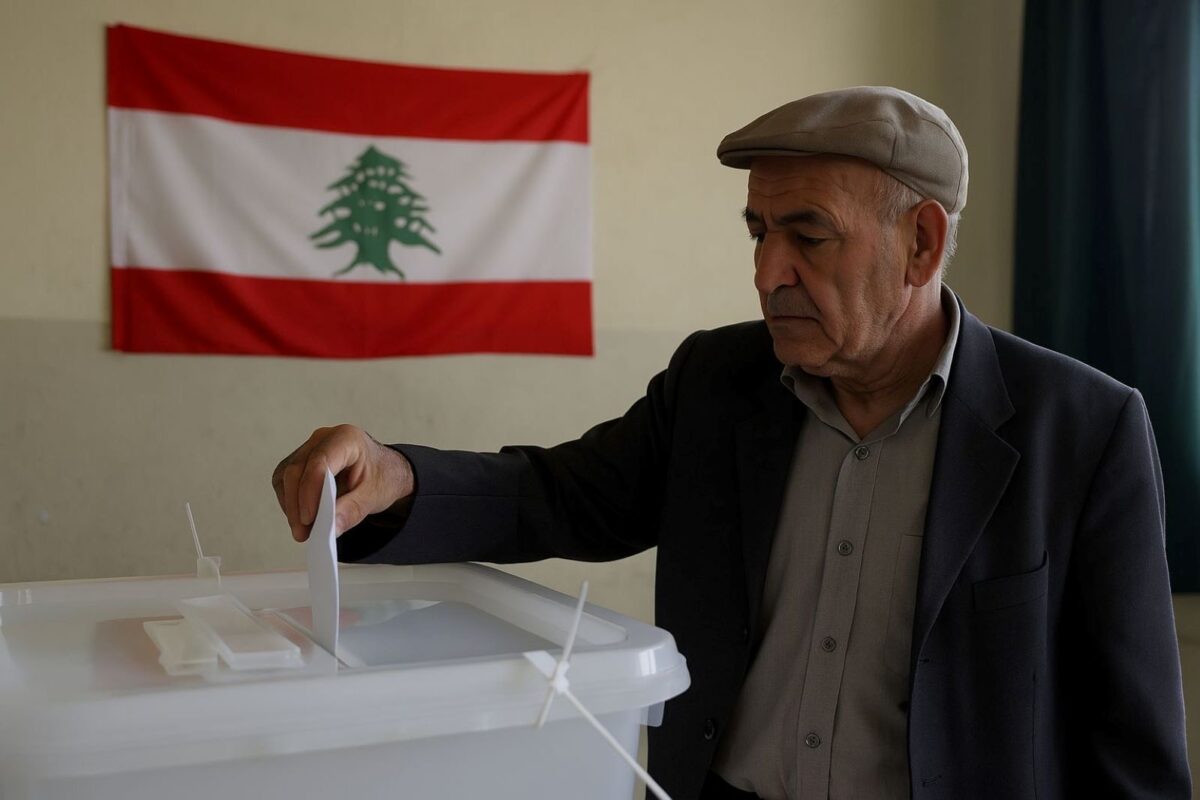
After repeated postponement of Lebanon’s municipal elections, the time to vote has finally come. However, with the exclusion of displaced residents from destroyed and Israeli-occupied villages, the risk is to weaken representative democracy and governance even further: something the country cannot afford, especially at a local level
The Lebanese Interior Ministry Ahmed Al-Hajjar officially set on Monday, March 24, the dates for municipal elections across Lebanon, held to elect local councils and mayors, in Arabic mukhtar – elected by the municipal council after the local council members have been chosen in the elections – in all the country’s municipalities. A subtle game of negotiating with local authorities, balancing like tightrope walkers on the edge of electoral laws, sectarian divisions, and regional political events – striving, some to foster transparency, some to perpetuate the widespread dynamics of clientelism and corruption.
Expected to take place next May, every Sunday, in different regions – respectively in Mount Lebanon on the 4th, in North Lebanon and Akkar on the 11th, in Beirut, Beqaa Valley, and Baalbek-Hermel on the 18th, and finally in South Lebanon and Nabatieh on the 25th -, these elections typically occur every six years, although the schedule can vary due to political circumstances, security issues, or delays in the electoral process.
Last time they were held was in 2016. Since the following term, the due time for municipal elections has been continuously postponed under the weight of the country’s still-unsolved socio-economic crisis. Hence, already deferred in 2022 and again in 2023 when Parliament passed a year-long extension citing financial reasons – despite critics having argued that Lebanon could have used support from the International Monetary Fund to organize the polls -, in 2024 they had to confront the exceptional, bloody circumstance of Israel’s war against the country’s south, a prime opportunity for political factions to advocate for a third postponement, as it was unsafe for the elections to take place in the targeted areas: and possibly beyond them. Yet, despite the harshness of the situation, the urgency of local elections was already tangible. It would be enough to mention that last year, about 134 out of 1,064 municipalities had already been dissolved, with many others effectively dysfunctional due to internal conflicts or lack of municipal funds and human resources. This time, with the same and other challenges pressuring the country, it is hard to say whether that urgency, in the meantime increased, will be sufficient to bring electors to vote.
“What is going to happen, if the municipal elections are taking place in a month or not, is unpredictable,” said Ziad Abdel Samad, co-founder and Executive Director of the Arab NGO Network for Development (ANND), when interviewed by NOW Lebanon. “So far,” he continued, “preparations with the Ministry of Interior are ongoing, and when the government will convene, next week, the municipal election issue will surely be on the agenda. Many are pushing to postpone, rumors are saying, and if that happens, they will most likely be held in 2027, after the parliamentary elections of next year, while others suggest a technical delay until next fall. As you can see, the situation now is not stable, and not only in the south, as Israeli operations are all over – the day before yesterday in Saida, three days ago in Beirut -, but even the eastern and northern borders with Syria are facing major challenges.”
Therefore, on one hand – the political instability of border areas. On the other one – the practical obstacles in holding elections in villages under constant Israeli bombardments. “There are so many villages in the south where elections are difficult to take place, and since Hezbollah was insisting not to create a megacenter, pushing for elections to take place in the very same places of citizens’ registration, or at least in neighboring ones – but Israel prevents prefabricated houses from being built – it is easy to believe voting won’t be allowed,” he explained. With all these challenges, the possibility of another postponement – the fourth in three years – is there: clear. Yet preparations are ongoing, the Ministry of Interior insists on the start date of May 4, and all the needs and expenses, they’re saying, will be covered.
The game of local sectarianism
President of the Euro-Mediterranean NGO Platform, Abdel Samad is also engaged with research institutions the Asia Pacific Research Network (APRN) and the Reality of Aid Network (RoA), and active in electoral reforms and monitoring at the national and regional levels, through the Arab Network for Electoral Reforms (ANDE) and the Civil Campaign for Electoral Reforms (CCER) in Lebanon.
In his opinion, voter turnout is expected in some municipalities. “Despite one third of them is not functioning now,” he told NOW Lebanon, “in the current condition, municipalities still play a very important role in the country, that is the reason why we need transparent elections, to renovate the political spectrum, create more trust with the local authorities, form new leadership at the local level, playing a better role in facing development, reconstruction and rehabilitation, and so on. Even if, politically speaking, with the current divide they will create a lot of tensions between the two camps – the pro-mumana’ah, in other words the so-called resistance, and the opposition to their policies – it won’t necessarily be a bad thing. This is an exercise that, like it or not, must take place. It is democracy. And also for the second camp it is fundamental to understand to what extent people are still supporting Hezbollah’s armed militia, and to what extent they want instead to embrace a peaceful and diplomatic process.”
This exercise, in Abdel Samad’s opinion, should take place before Lebanon’s 2026 parliamentary elections, although, as he said, “the two are not to be compared, since in the parliamentary political representation play the important role, while in the municipal ones the role of the clans and familiar ties and relations is more important.” Yet, in the big cities, it can give an indication of the political trends, that’s why all the political parties that assume they will win in their communities want the elections to take place.
In Lebanon’s municipal elections, the system works somewhat differently from parliamentary elections, despite still reflecting the country’s complex sectarian and local political dynamics, but at another level: municipalities are in fact the smallest administrative units in Lebanon and can range from small villages to large cities, such as Beirut and Tripoli. Aimed at determining local leadership, which plays a crucial role in managing local affairs, such as urban planning, services, and local development, municipal elections in Lebanon typically use a majoritarian system. This means that, unlike the parliamentary elections, which use proportional representation, candidates or lists who receive the highest number of votes in a municipality win the seats available. In most cases, voters in municipal elections cast a ballot for a list of candidates, often aligned with political parties, sectarian groups, or local coalitions – but, depending on the municipality, and especially in urban areas, voters may also vote for individual candidates rather than just party lists.
“Lebanon’s municipal system allows clans and family ties to impose more than any effort for accountability, that is why, generally, there is less transparency,” Abdel Samed continued, answering a question concerning the balance between sectarian quota and patronizing dynamics between families and clans. In the expert’s opinion, “some big towns and villages can stand as a real opportunity to elect new leaders, and try to hold failing councils finally responsible for corruption. But unless youth and opposition prove themselves able to organize campaigns based on programs and vision, to convince voters to support them, the opportunity of renewal will be once again wasted.”
Still, sectarian quotas may informally apply in some municipal elections, especially in areas where there are significant Christian, Sunni, Shia, or Druze populations: this, though, is not as rigidly enforced as in parliamentary elections, as sectarian quotas vary across different regions. Each municipality has a specific number of municipal council seats, which are usually divided among different sectarian groups, depending on the makeup of the population – especially in mixed municipalities, where sectarian balance is crucial to prevent one group from dominating the local council. As in towns and villages it is generally more complicated to protect the diversification of local representation, usually the councils foresee a proportional quota of the different families and sects. In big cities, however, like Beirut or Tripoli – which count more than 20 council members – representation becomes a problematic issue, because it increases the risk of losing the balance.
Last year, for example, the threat of losing the 50-50 balance between Christians and Muslims in the municipal board of Beirut was so crucial that it has been raised as one of the possible underlying reasons for postponing the elections. Since 1998 – when the municipal mandates’ extension started in 1969, six years before the start of the Civil War, finally came to an end, and new elections were held -, the Future Movement, Beirut’s biggest political force that is predominantly Sunni, had ensured the sensitive balance between the two sects was respected when composing the winning list. However, the capital’s status quo has been threatened after then-Prime Minister Saad Hariri, the party’s leader, deactivated the party in early 2022, right before parliamentary elections. This has led the Lebanese Forces and the Free Patriotic Movement, Lebanon’s two largest Christian parties, to demand changing the process in which the Beirut Municipal Board is elected, or even advocating the split of the municipality into two – east with mostly Christian voters and west with mostly Muslim ones: a bitter memory of a deeper, bloody, and not too distant division. Another proposal, then, suggests dividing Beirut into 12 smaller administrative districts, with the creation of a union that aims at guaranteeing fair representation of the city’s various identities within itself.
Yet there is no doubt that municipal elections in Lebanon have always been an opportunity for change groups to challenge both traditional parties and crystalized sectarian dynamics: and not only due to the intricacies of family dynamics, local political figures, and political alliances. In 2016, Beirut Madinati – or ‘Beirut My City’, a local political movement made up of 24 citizens, launched right before the elections, and criticized to be perceived as too elitist – managed to force all traditional parties to ally together and rally support against it to ensure no new players reached the municipal council.
Nevertheless, taking on Lebanon’s entrenched political overlords and sectarian political establishment – while offering a 10-point program proposing solutions to the trash crisis, public transportation plans, and poverty alleviation -, the group garnered a staggering 40 percent of the vote: yet, it failed to secure seats due to the nature of the majority-based electoral system. Despite that, the campaign inspired a broader movement of independent lists running for municipal elections against lists backed by traditional parties. And that is why the candidates of Beirut Madinati succeeded in what many others failed: even without overturning the system, they showed their fellow Lebanese that it is possible for civil society to organize, engage in politics, and start the process of political reform. Even if it starts like fielding just a few candidates as a symbolic protest: it can be enough, given the ability to understand how imperative is the opportunity to seize upon citizens’ deep frustration with the current system.
Moreover, the 2016 municipal experience also contributed to more organized efforts to challenge traditional parties during the 2018 and 2022 parliamentary polls, with 13 MPs from outside the establishment getting elected in 2022. Contesting the grip of traditional political parties, then, might have further grown as the financial crisis, the Beirut explosion, the general deterioration of socio-economic and political environments, and what seemed like an inevitable, losing war against the Zionist enemy – draw more unsatisfied voters away from traditional parties.
The southern exclusion
In this sense, among the many ways in which the game of alliances should be read – see the renewed one of the Shiite tandem Amal-Hezbollah, which will compete together across all regions for this election, as well as the Christian one between the Lebanese Forces and the Kataeb in certain areas, such as Jounieh and Kesrwan – the one of the ‘weaker’, in the sense of a minor popular support, stands out: that is, in this case, guaranteeing Amal and the Kataeb a certain local representation, so as not to be phagocytized by their competitors, sometimes enemies, sometimes, like next May, allies.
However, things become more complex as we approach the other point of view, that of the ‘stronger’ – always meant in terms of popularity among the local communities: and especially in areas that have been depopulated, when not razed to the ground, in some cases still bombarded, causing dozens of civilian victims – in the very same hours as we live our normal lives. For Hezbollah, that has likely lost part of its widespread support, especially after the assassination of former Secretary General Hassan Nasrallah, the option of losing the municipalities in the southern border villages, as well as in some of the Beqaa Valley – where, however, clientelist dynamics among the local families risk imposing themselves more strongly than the presumed loyalty to the ‘party of God’ – is not contemplated. Analysts still do expect that since the very survival of the party, and consequently the possibility of a post-conflict reconstruction of the infrastructure, is at stake, Hezbollah candidates will secure a good percentage of municipalities, especially in the Southern and Nabatieh governorates: assuming the elections will be held there.
In Ziad Abdel Samad’s opinion, both Amal and Hezbollah are pushing elections to happen this May. “For the time being, they’re still able to mobilize people with their alleged role – which is the protection from Israeli aggression – and still they enjoy fundings to pay salaries, basic reconstruction and rehabilitation fees, services or whatsoever. And because in the long run this might not be available anymore,” he predicted, mentioning the sanctions Iran-backed movements are facing, and new political realities unfolding, “the possibility to support their communities will fail, which means that it will not serve their campaign anymore, and if now they have some resources left, later they may not, and their supporters will be less and less mobilized.” While, if the elections take place now, “they will surely win in almost all the Shiite-majority villages of the South and the Beqaa governorates, in joint coordination, reaching consensus before candidates of opposition parties, therefore pushing them to withdraw.”
Although May 25, the date set for municipal elections in the areas most affected by the Israeli war, is a long way off, the fact that the shelling in border areas has never ceased, that Israeli troops continue to occupy the five positions declaring their presence “indefinite”, and that a new escalation of targeted strikes has begun to terrorize Beirut once again, all suggest that elections in some municipalities will be postponed. Or, worse, that displaced residents will not be guaranteed to vote in a megacenter, a large polling station allowing voters to vote near their residences instead of their original constituency: a draft proposal that MPs Waddah Sadek and Marc Daou have introduced, suggesting a few months’ delay of the elections – not only in the south – to allow time for reforms. The draft law aimed at introducing changes, like gender quotas for candidacies, the establishment of megacenters, and the adoption of a closed-list system.
Commenting on electoral law’s reforms, Abdel Samad stressed the issue of decentralization, which is provided for by the constitution, meaning “to keep in mind the objective of development, filling the gaps between the different regions, specifically the urban-rural gap, hence reconsidering the whole administrative structure of the country.” “This is also mentioned in the constitution,” he continued, “creating local entities that are able to ensure development by merging certain municipalities, forming new ones, or creating bodies representing departments at different levels, in different geographical areas, etcetera.” Changing Lebanon’s administrative structure, in his opinion, and creating local authorities accordingly, will induce the adoption of a special electoral law for the municipalities. “When we have larger councils, then we can apply proportional representations, and quotas based on family, sect, gender, even age. Any possible step, though, has to start from a radical way of reforming, that brings a deep change while taking into consideration what is written in our constitution,” concluded the expert.
However, stakeholders have firmly opposed the proposal. “We are against any postponement of the municipalities because it is time to break away from this practice,” Lebanese Forces (LF) spokesperson Charles Jabbour told Lebanese newspaper L’Orient-Le Jour, arguing that the debate around the proposed reforms can be initiated after the elections. The Free Patriotic Movement (FPM) echoed the same sentiment. “If they can adopt the reforms before the vote, it will be a good thing. Otherwise, we can talk about it later,” FPM MP Cesar Abi Khalil said. He added that it is no surprise that “two MPs close to the Prime Minister are pushing for postponement,” while also wondering whether the government is “capable” of holding the poll on time.
Contrary to such allegations, on Monday, the Prime Minister’s press office denied “all the rumors” pertaining to any postponement – echoed by Parliament Speaker Nabih Berri, who, in an interview with al-Joumhouria, said that “the postponement of the municipal elections is out of the question and has no reason to be. We insist on holding elections throughout Lebanon, particularly in the municipalities of the southern regions that have been destroyed by Israeli aggression.” And he added: “If it’s possible to set up polling stations there, so be it; if not, we will set up polling stations in other places, in a building located in a neighboring village, in an apartment, or a room. We will vote even if it’s in the dust.”
Even Interior Minister Ahmad Hajjar stated at the beginning of March that he intends to organize municipal elections in southern Lebanon, despite the massive destruction it has suffered due to Israeli strikes in the region. However, when at the beginning of February 2025 – a few days before the new government was formed – Lebanon’s then-Minister of Interior, Bassam Mawlawi, announced a series of preparatory measures for the upcoming 2025 municipal and mukhtars elections – consisting in inspections of polling centers across the country, through the evaluation of the readiness of polling stations and their capacity to handle voter turnout, as well as ensuring accessibility for individuals with special needs – the inspections excluded, as expected, certain southern villages that remain under Israeli occupation.
Advocating against partial elections
To avoid such exclusion, last year, civil society groups – made up of different entities, such as the Lebanese Union for People with Physical Disabilities (LUPD), the Lebanese Association for Democratic Elections (LADE), Transparency International Lebanon – No Corruption, and Maharat Foundation – have been vocally advocating for the organization of southern municipalities’ polls and have proposed setting up megacenters to respond to the electoral needs of internally displaced citizens by allowing them to vote away from their villages of registration. The establishment of megacenters has been in fact a recurrent demand, which civil society argues would decrease voter intimidation and increase participation – giving a boost to the voter turnout, that in some areas risks to be extremely low, especially when citizens feel disillusioned with the political process or when elections are perceived to be controlled by political elites.
At the same time, however, establishing megacenters barely a few weeks before the elections is a far-fetched solution since it requires a pre-registration period and extensive logistical preparations, which should have been thought of and executed a while ago. Looking again at last year’s failure, although the 2024 budget allocated some 10 million dollars for the elections, the Ministry still had to overcome serious challenges to organize them on time: recruitment and training of some 5,000 polling staff – many of whom residing in South Lebanon; the identification of polling centers; the mobilization and deployment of security forces; the procurement of electoral materials; and, most importantly, the lack of political will to hold the polls. One month before the start of the elections, it is hard to believe that all these needs will fit into the 2025 budget, let alone the establishment of megacentres.
The other proposed solution was to hold the polls in non-impacted areas while postponing them in affected regions. Based on two precedents in 1992 and 1998 when parliamentary and – in the second case – municipal elections were held across the country except for the southern villages under Israeli occupation, this argument falls short considering the active conflict taking place and Israel’s reliance on advanced technology to track and target Hezbollah operatives across the country. Holding these polls could in fact have political repercussions on Hezbollah if the turnout in its strongholds is low or the opposition to its lists is stronger than expected – not to mention that Israel’s ongoing war against the Iran-backed party will also hinder its capacity to campaign and mobilize supporters properly.
One thinks, in this regard, of the municipality of Haret Hreik – the neighborhood in the southern suburbs of Beirut that has suffered most from the brutal Israeli aggression -, located in Mount Lebanon, where the vote will be held exactly one month from now: on May 4. Considered a stronghold of Hezbollah, where its former leader, Hassan Nasrallah, was assassinated on September 27, it is of him, the so-called Sayyed, that Haret Hreik bears the memory: in an empty square where yet another memorial will probably be erected, that of the site of his spectacular – in terms of destruction, noise, widespread fear – murder.
And yet, the Shiite-majority area has been at the center of another controversy, after recent statements by MP Alain Aoun regarding the Free Patriotic Movement’s attempt to renew alliances with its former Shiite ally ahead of the municipal elections have fueled a new exchange of accusations between the parliamentarian and the Aounist party, particularly concerning the specific situation in Haret Hreik. Aoun, one of the MPs who left the FPM, criticized party leader Gebran Bassil on Thursday during a show on the local channel MTV, accusing him of “not knowing how to engage in dialogue with different viewpoints, but succeeding in making enemies.” Asked about the municipal elections scheduled for May 2025, especially in Haret Hreik, his hometown, Aoun highlighted that the party was trying to resolve its situation with the Shiite community.
Recalling the 2010 electoral process in Haret Hreik, with a mixed Shiite and Christian population, where “Christian families first choose their representatives, who then agree on a municipal president, and the Shiite community accepts and supports this choice,” the MP’s statements were categorically rejected by the FPM Committee in Haret Hreik, who flipped the situation by recalling that “Alain Aoun had claimed to have received promises from the Shiite duo, allowing him to choose the two names to be included in the municipal list” – allegations later admitted as exaggerated. In response to these claims from his former party, Aoun defended himself in a statement, saying that he did not support any particular candidate for the municipal elections, a deadline perceived as a test of popularity for political parties a year before the 2026 legislative elections.
What is yet to be seen is Hezbollah’s position on the matter, given that the party has already made clear it will forge alliances with its traditional partner, the Amal Movement, signaling a show of unity despite recent disagreements between the two groups: beyond guaranteeing local representation, though, what is at stake for the ‘party of God’ is a real participation in the new state building process – a participation strongly hindered by the United States, as the Special Envoy Morgan Ortagus had not hesitated to declare, during her first visit to Lebanon after the inauguration of Donald Trump at the White House. Now, ahead of her second trip to Beirut, which is expected to set a deadline for the disarmament of Hezbollah, one wonders what American positions will be on the party’s political existence itself, beyond its arsenal: perhaps, the upcoming municipal elections will serve as a litmus test for what the Lebanese political landscape will resemble in a year’s time, ahead of the next parliamentary elections.



